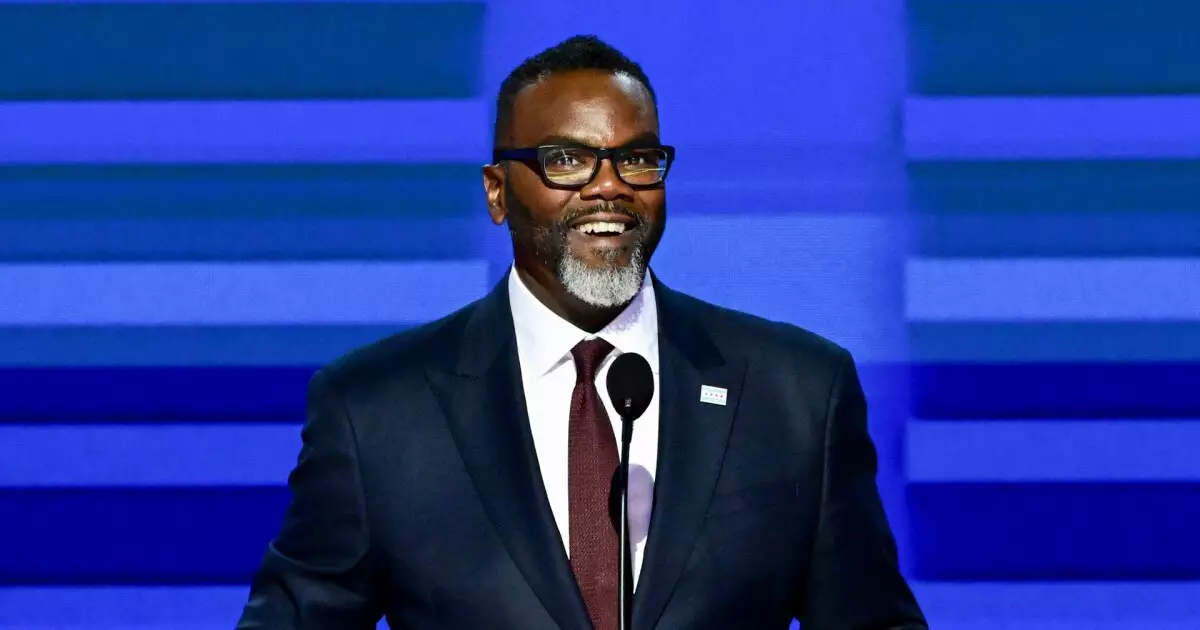Chicago City Council Approves Major Debt Refinancing Amid Financial Concerns

On Tuesday, the council voted 35-12 in favor of the refinancing initiative, which Mayor Brandon Johnson’s administration heralded as a pivotal achievement in sound fiscal management. This move is projected to lower the average interest rate on the refinanced debt from 5.62% to 3.75%. In essence, this translates to an anticipated $110 million in present value savings for the city, marking a crucial step on the path to financial sustainability. However, the excitement surrounding these savings is tempered by concerns that the refinancing may merely be a temporary fix rather than a comprehensive solution to Chicago’s budgetary challenges.
Critics of the refinancing plan have noted that while it offers immediate financial relief, it may mask deeper issues within the city’s financial framework. Lisa Washburn, Managing Director at Municipal Market Analytics, warned that the current measures could signal a halting of the upward trajectory in the city’s credit quality. “Their days of seeing upward credit momentum could be behind them,” Washburn observed, suggesting that the city’s reliance on refinancing could become a recurrent theme rather than an isolated incident.
The council’s recent decision was not without contention. During the debate, some aldermen voiced concerns about the lack of transparency in the proposed ordinance. Ward 15 Alderman Raymond Lopez articulated skepticism over the absence of robust communication from the city’s finance team with those questioning the deal. Furthermore, he raised the issue of using bond proceeds for expenses outside of what was intended, implying that this could lead to long-term financial complications for future administrations.
City Chief Financial Officer Jill Jaworski defended the ordinance, asserting that the plan strictly confines the funds to cost-saving refinancing. Yet, op-eds from figures such as Illinois Comptroller Susana Mendoza echoed the sentiment of caution regarding potential loopholes that could be exploited. Mendoza emphasized the necessity for clarity on the projected savings and urged a demonstration of the calculations behind the $110 million figure, criticizing what she described as a lack of respect for taxpayers due to insufficient transparency.
The refinancing structure itself has been compared to past financial strategies that have plagued Chicago’s fiscal health, specifically the notorious “scoop-and-toss” schemes that previous administrations aimed to eliminate. Such practices, characterized by delaying principal payments, have drawn criticism for passing financial burdens onto future budgets. Analysts like Washburn highlighted that while the city may not explicitly label this refinancing as “scoop-and-toss,” the potential for transferring debt responsibilities remains.
The fear of repeating past mistakes is palpable among financial analysts and city officials alike. If the current administration continues to lean on one-time financial solutions without establishing consistent revenue sources or cutting expenditures, skeptics worry that today’s savings could pave the way for tomorrow’s crises.
Credit rating agencies have responded with a cautiously optimistic view of Chicago’s financial trajectory, with Fitch Ratings upgrading the city’s issuer default rating to A-minus this summer. However, sustainable improvement hinges on the administration’s ability to adopt comprehensive solutions. Continued employment of refinancing methods to manage budget deficits raises a critical question: how does the city intend to address structural financial issues moving forward?
While the promised savings present an appealing prospect for immediate fiscal relief, financial experts and city residents alike anticipate clarity on the city’s long-term financial strategy. Will the administration commit to genuine reform, fostering a transparent dialogue about the implications of refinancing? Or will this approval serve merely as a temporary patch over deeper fiscal wounds?
As the city prepares to proceed with the bond issuance in late 2024, Chicago’s residents and leaders watch closely, hoping for prudence in decision-making that avoids further entrenchment in the cycle of debt. The decision to refinance may appear prudent at first glance, but the need for lasting fiscal responsibility remains an imperative conversation for the city in the years to come.





